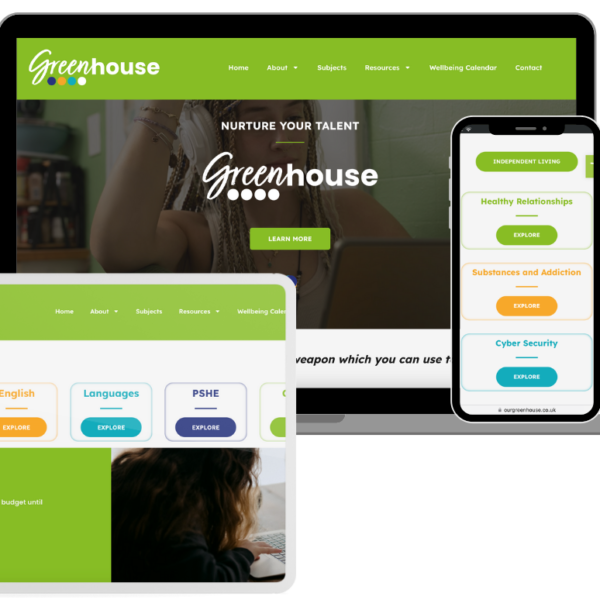'What's the point' projects
Helping young people find reasons to care about their education requires showing them how it connects to their personal needs, goals and staying relevant by incorporating 21st century skills into our framework. The passions and priorities activities helps us get a better idea of how to get buy in from students around their education and to help them keep up with the lightning pace of today’s modern markets. Each skill and ability we nurture and adapt our projects to is unique in how it helps students:
- Critical thinking
- Creativity
- Collaboration
- Communication
- Information literacy
- Media literacy
- Technology literacy
- Flexibility
- Leadership
- Initiative
- Productivity
- Social skills
Education doesn’t stop at 16 and one of our key goals is to help create careers, not jobs, and these projects are an important starting point for this. You can read more about our goals and how we set out from the start here.
Instead of just framing education as a way to get a job, we can connect it to things students care about or will need in their future, such as:
- Independence: Education provides the tools to manage your own money, health, and career.
- Choices: More education means more career options, financial stability, and personal freedom.
- For looking after others: Caring for people (e.g. siblings etc.) requires skills to manage money, communicate their needs, and make sure they’re getting the support they deserve.
For fixing the system: Education gives the tools to speak up, inspire others, and understand the issues that need solving.
Below are some examples that respond to common “What’s the point?” questions, each broken down into relevant skills from core subjects from the national curriculum. These will be used to help frame the conversation around education holding a purpose, allowing us to build mini interdisciplinary projects around the goals or drivers each student has based on their ‘what’s the point’ questions. From there, more complex and longer projects can be developed to further span the curriculum and any qualification goals they may have.

"What's the point of learning if I just need to work to get money?"
Understanding percentages and basic arithmetic is crucial for managing money, budgeting, and understanding taxes. Skills like working out percentages of discounts, understanding loans or credit, and calculating savings are useful.
Communication is key in any job. Writing a good CV or application letter and being able to communicate professionally in emails or interviews gives you an edge.
Critical thinking (understanding contracts or offers), time management (balancing work and rest), and self-discipline.
"Why do I need to learn this stuff if I want to start my own business or be an entrepreneur?"
Whether you’re selling products or services, you’ll need to calculate costs, profits, and investments. Budgeting, calculating break-even points, and tracking revenue will all involve maths.
Communicating your vision to potential investors or customers, creating marketing materials, and writing contracts or policies will require strong English skills.
Problem-solving, creativity, resilience (bouncing back from setbacks), and leadership.
"What’s the point in learning if I don’t know what I want to do?"
Basic numeracy is useful for navigating life, whether you’re working in a shop, managing your own finances, or later choosing a technical career.
Developing skills in reading, writing, and critical thinking gives you the flexibility to adapt to different careers. Good communication is valuable in any job.
Curiosity and learning how to learn—being open to different subjects and skills gives you options as you explore different career paths.
"Why should I care about learning maths if I just want a regular job?"
Almost all jobs require some math. In retail, you’ll need to calculate change and discounts. In hospitality, you may need to track stock or work out schedules. Understanding math can make you more efficient in nearly any role.
Clear communication with coworkers, supervisors, or customers is key, even in regular jobs. Writing reports, communicating in meetings, and reading instructions are all part of many roles.
Professionalism, organization, and teamwork—skills you pick up across many subjects—are vital in any job setting.
"Why should I care about education if I actually want to make a difference in the world/the world is broken?"
Understanding statistics, data, and budgets is essential for creating change in communities. Whether you’re organizing charity work, working on policy changes, or helping others directly, you’ll need to manage resources and understand the impact of your efforts.
To inspire others or advocate for change, you’ll need to write clearly, speak confidently, and persuade people. Writing petitions, speaking to community leaders, or even creating social media campaigns all require strong English skills.
Leadership, critical thinking, and networking. Making a difference requires not just good intentions but also the ability to analyze situations and bring people together for a cause.
"How will education help me be independent and live on my own?"
Living independently means managing your own money, whether that’s budgeting for rent, groceries, or saving for the future. Basic math skills help you understand bills, compare prices, and manage debt.
Independence requires navigating adult responsibilities like signing contracts (for housing, phones, or work) and understanding important documents. Strong reading and writing skills help you avoid getting into bad situations, like signing unfair contracts.
Self-discipline, time management, and problem-solving. To live on your own, you need to be able to manage your time and resources effectively, stay organized, and solve problems that come up in everyday life.
"What’s the point of learning if I just want to take care of my family (or others)?"
Managing household finances is important when caring for others. Budgeting for groceries, bills, and savings ensures that the people you care about have what they need.
Clear communication is essential when advocating for family members, whether it’s with doctors, teachers, or government services. Being able to read, write, and understand important documents (healthcare forms, housing applications, etc.) helps you navigate systems for your family’s benefit.
Empathy, problem-solving, and organizational skills. You’ll need to be resourceful and organized to manage family responsibilities.
"What’s the point of education if I just wanna be a gamer?"
Even in gaming, maths plays a role. Whether it’s calculating damage points, understanding in-game economies, or figuring out how to build the best character or team, math is behind a lot of gaming strategy. If you’re interested in designing games, you’ll also need maths for coding and game mechanics.
Communication is key in gaming, especially in multiplayer environments. Being able to collaborate with teammates, write clear messages, and follow instructions in quests or missions is crucial. Also, if you ever wanted to review games or create content about them, strong writing skills help you reach a larger audience.
Critical thinking, problem-solving, and patience—whether you’re strategizing in a game or learning the mechanics, you’re developing skills that can apply to real-life situations. Games often teach teamwork, leadership, and perseverance, all of which are useful in the real world.
"What’s the point of learning if I just want to be an influencer or YouTuber?"
Influencers and YouTubers often need to track their own analytics—how many views they get, audience engagement, conversion rates (likes, comments, shares), and even income from ads or sponsorships. Understanding basic statistics and percentages is crucial to growing a channel and knowing what content works.
Communication is at the heart of influencing. Whether you’re creating scripts for your videos, writing captions or descriptions, or responding to comments, clear, engaging writing and speaking are essential. Good storytelling is often what keeps an audience coming back.
Creativity, marketing, and business skills. Influencing is more than just making content; it’s about branding, networking, and understanding how to market yourself effectively. To attract sponsorships or grow a brand, you need to know how to negotiate deals, manage finances, and build a personal brand.
If you want more information or want to register interest in enrolling or referring a student, please follow the link below
Register
Click on the icon to register
